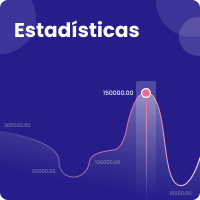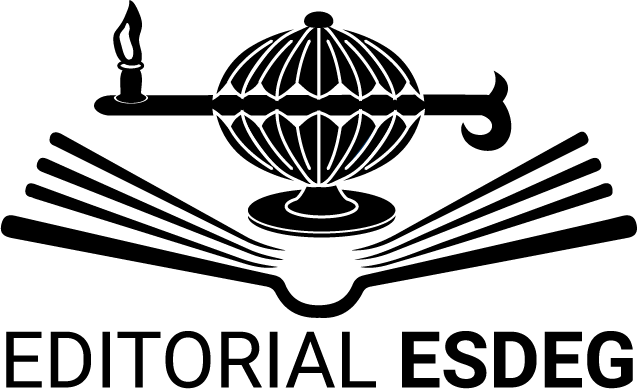¿De qué manera podría la Armada Nacional tener un poder de influencia mayor en el teatro regional?
DOI:
https://doi.org/10.25062/2500-4735.429Keywords:
Armada Nacional, capacidades fundamentales, influencia regional, desarrollo y transferencia tecnológica, estrategia nacional, estrategia marítima, estrategia naval, poder marítimoAbstract
The National Navy of Colombia, contemplates in its institutional positioning, five fundamental capacities: Coverage of the territorial sea and adjoining zone the strategic capabilities of complete defense, the adequate control of the exclusive economic zone and the continental platform, the strengthening of the capacities in rivers and borders and consolidate the regional presence and leadership. In the maritime world context, Colombia as a bioceanic state should broaden its vision, position and prospective, with a medium and long-term perspective focusing on a time frame at least 2050, in order to generate a credible and effective influence, particularly by boosting; the national maritime authority, coastal protection, the promotion of maritime technology and innovation, research and development, the transverzalización of policies and intersectoral coordination, in a proactive international management and a greater emphasis on the Antarctic program. Influence through technological development and technology transfer programs is one of the necessary variables to build a Regional Influence. The interpretation and analysis of a new vision of Maritime Power as a sub-set of National Power, in the context of a National Strategy and a Maritime Strategy that results in the achievement of greater maritime awareness and the achievement of the objectives demanded by the national society. A new formula of Maritime Power is then proposed as an element of debate and analysis and construction of knowledge around national maritime activities.Author Biographies
Tomas Alfredo Roncallo Torres, Escuela Superior de Guerra “General Rafael Reyes Prieto”, Colombia
Mario Ricardo Vélez Forero, Escuela Superior de Guerra “General Rafael Reyes Prieto”, Colombia
Gerardo Sanabria Gaitán, Escuela Naval de Posgrados de Estados Unidos, Estados Unidos
References
Cátedra Colombia COARC Esdegue_2018_revisadaV2.pdf. (2018).
Carreño, J. (2017). Gestión del conocimiento en la industria naval: Impacto en el desarrollo tecnológico y la cooperación regional. Colombiamar 2017. Cartagena.
CCO. (2017). Política Nacional del Océano y los Espacos Costeros. Bogotá.
COTECMAR. (2016). Informe de Gestión 2015. 15.
Creus, N. (2013). El concepto de poder en las relaciones internacionales y la necesidad de incorporar nuevos enfoques . Estudios Internacionales(175), 63-78. https://doi.org/10.5354/0719-3769.2013.27372
Hartmann, F. (1978). The Relations of Nations. 1978: Macmillan.
Hattendorf, J. B. (October de 2013). What is a Maritime Strategy? Soundings, 1-13.
Keohane, R. O., & N. J. (1988). Poder e interdependencia : la política mundial en transición. Buenos Aires, Argentina: Grupo Editor Latinoamericano.
Mahan, A. T. (1890). The influence of sea Power Upon History. (C. U. Press, Ed.) Boston, United States: LITTLE, BROWN, AND COMPANY.
Nye, J. (2004). Soft Power: The Means To Success In World Politics. New York, United States: New York : Public Affairs.
PTP. (2013). Plan de Negocio para el sector siderúrgico, metalmecánico y astillero en Colombia.
RAND. (2000). Measuring National Power in the Postindustrial Age.
Solís, E. (1999). Algunas Consideraciones Sobre la Estrategia Marítima. Revista de Marina, 1-19.
Tellis, A. J., J. B., & C. L. (2000). Measuring National Power in the Postindustrial Age. Santa Monica: RAND Corporation.
Universidad del Norte. (2011). Sistema Sectorial de Innovación de la industria astillera en Colombia.
UTB. (2016). Impactos Socioeconómicos de la Implementación Del Programa Plataforma Estratégica de Superficie.
How to Cite
Downloads
Downloads
Published
Issue
Section
License
Copyright (c) 2022 Ensayos sobre Estrategia Marítima

This work is licensed under a Creative Commons Attribution-NonCommercial-NoDerivatives 4.0 International License.
| Article metrics | |
|---|---|
| Abstract views | |
| Galley vies | |
| PDF Views | |
| HTML views | |
| Other views | |

















